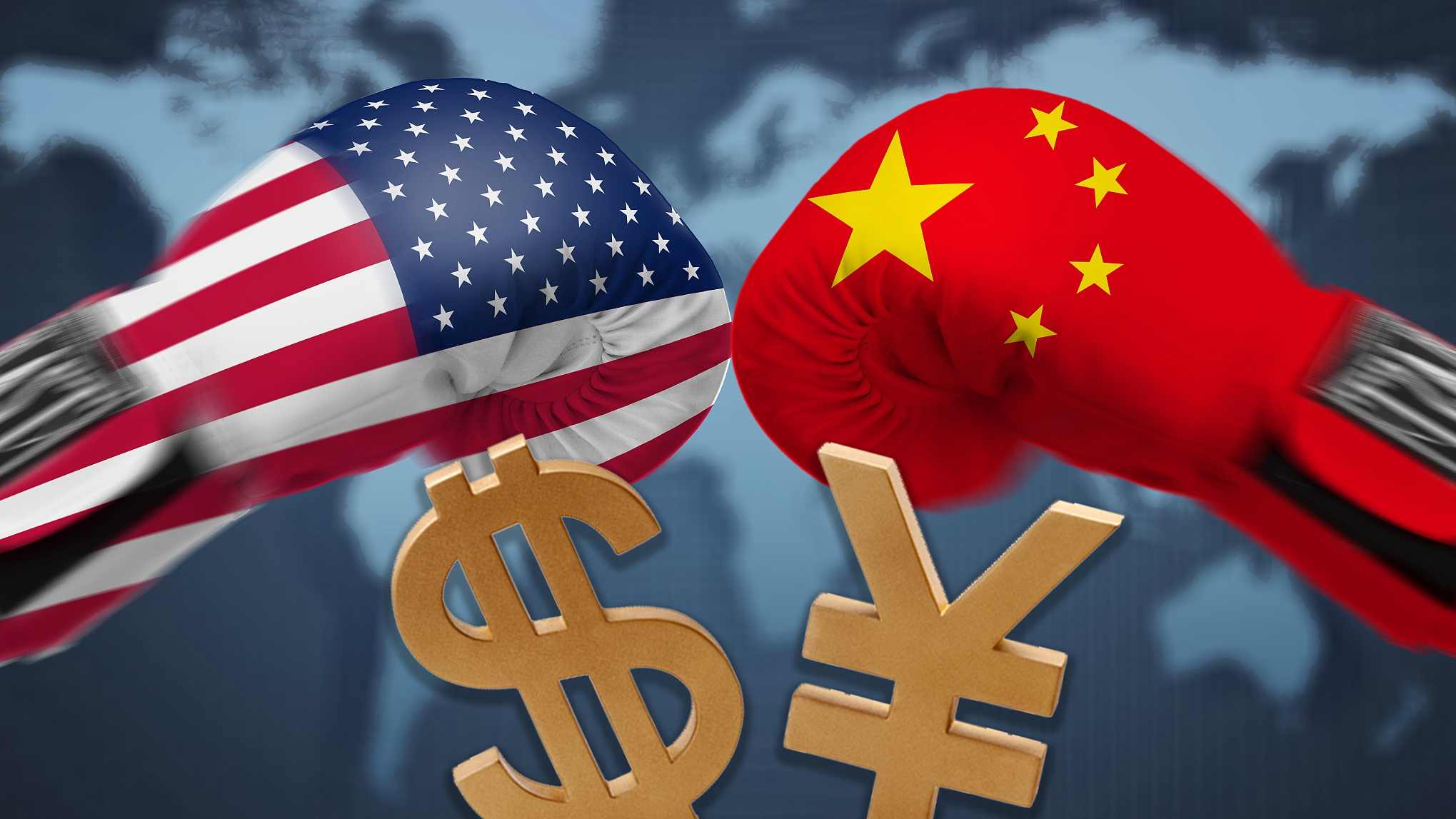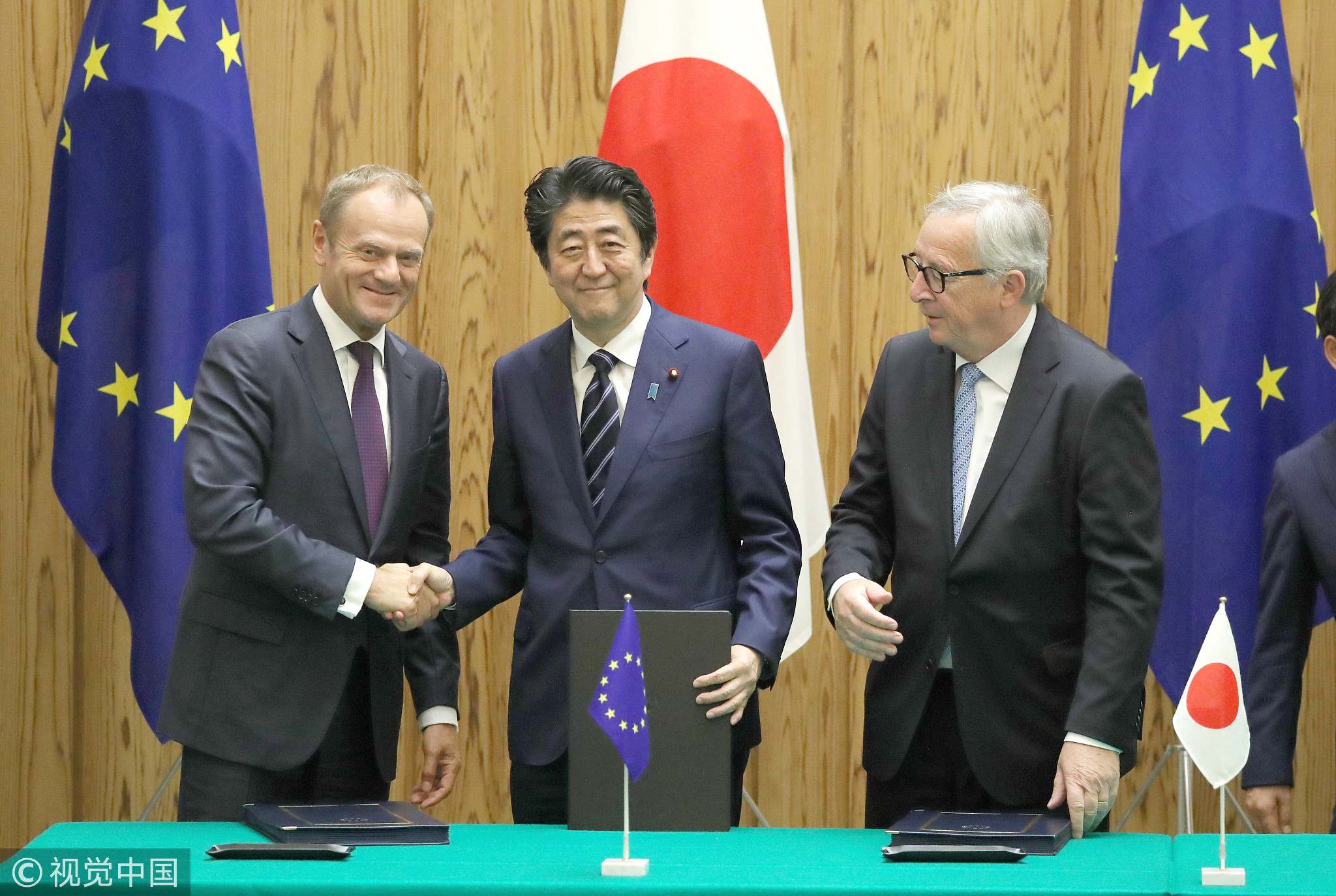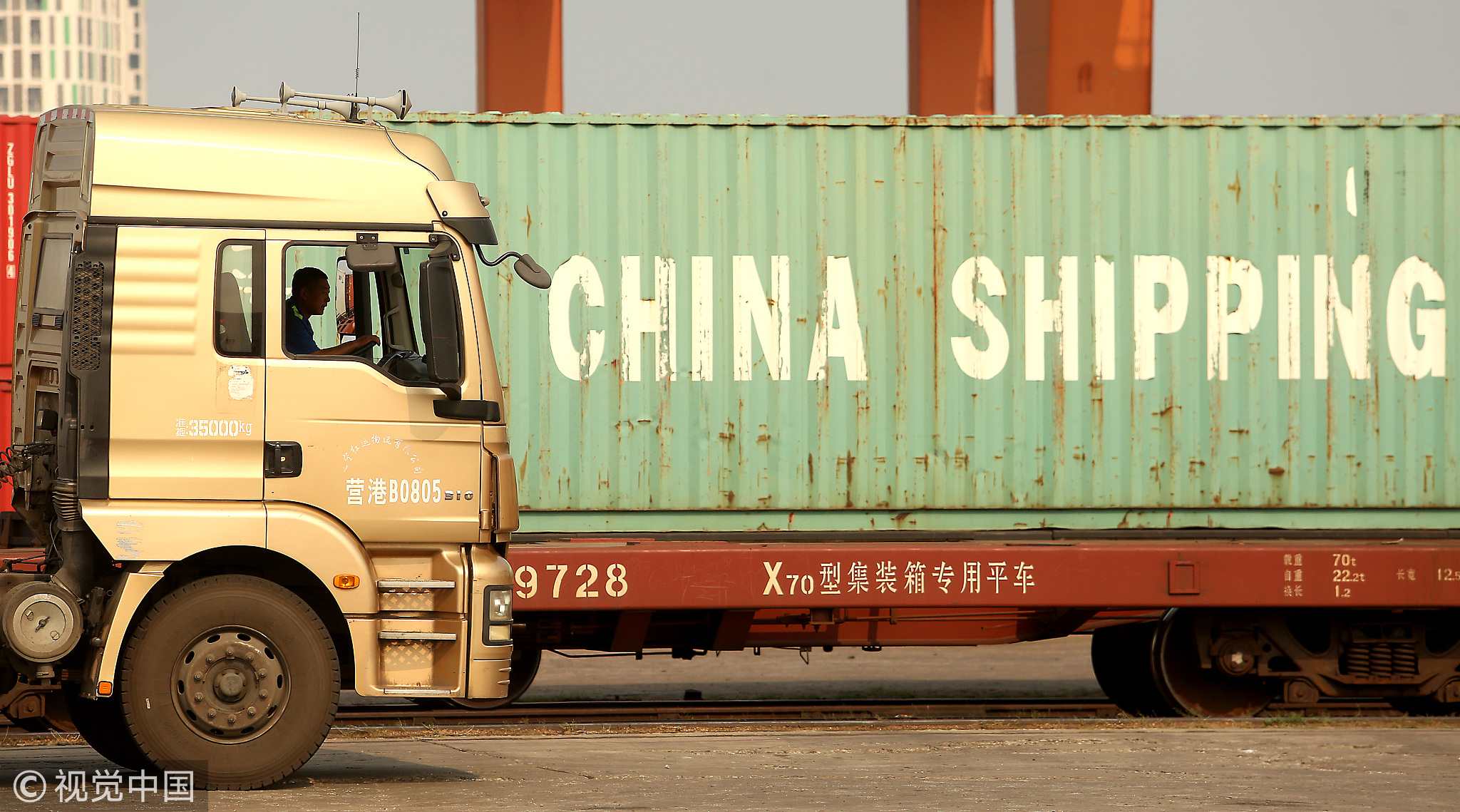
Opinions
12:13, 23-Jul-2018
Opinion: Trade Wars versus Free Trade: A case of conflict versus cooperation
Updated
22:54, 30-Jul-2018
Dr Richard Fairchild

Editor's note: Dr Richard Fairchild is an Associate Professor at the Finance of School of Management at the University of Bath. The article reflects the author's opinions, and not necessarily those of CGTN.
As US President Trump cements his protectionist stance, with his system of trade tariffs around the globe (his “America First” policy), the rest of the world seems to be moving toward a more open, cooperative and collaborative free-trade approach.
On Tuesday, Japan and the EU signed a reciprocal free-trade agreement. Similarly, China has stated that it wishes to develop free-trade relations with the EU.
Concerning the agreement, Donald Tusk, the president of the European Council, has stated: "Today is a good day, not only for all of the Japanese and Europeans, but for all reasonable people of this world who believe in mutual respect and cooperation... political uncertainty, tariff wars, unpredictability, irresponsibility – they are the real risks for our businesses, not trade agreements."
Japanese Prime Minister Abe stated that this "shows the world the unshaken political will of Japan and the EU to lead the world as the champions of free trade at a time when protectionism has spread."

From left to right, European Council President Donald Tusk, Japanese Prime Minister Shinzo Abe and European Commission President Jean-Claude Juncker attend the signing of an EPA between Japan and the EU during a Japan-EU summit meeting at the prime minister's office in Tokyo, Japan, on July 17, 2018./VCG Photo
From left to right, European Council President Donald Tusk, Japanese Prime Minister Shinzo Abe and European Commission President Jean-Claude Juncker attend the signing of an EPA between Japan and the EU during a Japan-EU summit meeting at the prime minister's office in Tokyo, Japan, on July 17, 2018./VCG Photo
Similarly, the EU and China met yesterday in Beijing on July 16 to discuss the deepening of a strategic global partnership. The President of the European Commission, Jean-Claude Juncker, stated, "I have always been a strong believer in the potential of the EU-China partnership. Europe is China's largest trading partner, and China is our second largest."
The cooperation/conflict Game
Game theory provides some lessons here, particularly in the field of strategic alliances in the face of conflict. In the last report, we considered a two-player trading game (the USA and the EU), where we considered trade tariff wars as a form of the "prisoner’s dilemma": the dismal self-interested equilibrium resulted in mutually destructive trade tariffs, which hurt both nations. We then analyzed the possibility of mutual trust, empathy, and a cooperative spirit, leading to the mutual free trade. However, we showed that it takes just one of the players to renege, and to become extremely self-interested, to impose tariffs and destroy the cooperative outcome.
Now, consider a three-player game (where the players represent trading nations). The extra player adds an extra variable to the game, thus increasing the complexity and variations in the outcomes, which reflect the real world.

Chinese truck drivers transport cargo containers to a port in Yingkou, a major port city in Liaoning Province, on July 18, 2018./VCG Photo
Chinese truck drivers transport cargo containers to a port in Yingkou, a major port city in Liaoning Province, on July 18, 2018./VCG Photo
Game-theoretic models exist that analyze such three-player trading games. In these models, three situations potentially arise: a) mutual self-interest: all players impose destructive self-interested tariffs on each other: mutual Prisoners Dilemma; b) all three make mutual cooperative free-trade agreements: the best outcome; c) two players form a free-trade alliance, and the other player remains 'out in the cold', imposing non-cooperative tariffs, which are reciprocated by the first two players.
The current global situation represents outcome c): the EU and Japan (and the EU and China) have formed a mutually cooperative, collaborative, free-trade alliance, while US remains self-interested in its protectionist stance, to its chagrin and disadvantage.
A particularly interesting three-player game is the “truel.” The truel is an extension of a duel in which three players stand at the corners of a triangle, armed with pistols. The rules of the game are that each player takes turns to choose who to fire at, which suggests mutual and global self-destruction. In a behavioral or psychological version of the truel, each player has its preferred target (it has antipathy towards that target), and each player has empathy for one other player. This results in a pattern of alliances and conflicts.
The truel can be thought of as a metaphor for the current global trade situation, where nations are not firing bullets, but are firing destructive trade tariffs at each other. We observe that some nations find it easy to form alliances with each other, while other nations are isolated and antipathetic.
The psychological truel game demonstrates that when one nation becomes more aggressive, this cements the cooperative behavior of the other two nations. Indeed, some commentators have stated that Trump's ”America First” protectionist stance has unwittingly provided the motivation for the EU and Japan, and the EU and China, to overcome any differences, draw closer together, and create mutually cooperative trade agreements, as predicted by the psychological truel!

SITEMAP
Copyright © 2018 CGTN. Beijing ICP prepared NO.16065310-3
Copyright © 2018 CGTN. Beijing ICP prepared NO.16065310-3